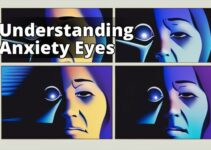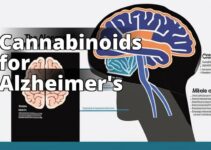What You Will Learn from this Article
- Overview of ADHD and its common symptoms
- Current treatment options for ADHD, including medications and behavioral therapies
- Definition of CBD oil and its potential benefits for ADHD
- Scientific theories behind how CBD may interact with the brain
- Limited scientific evidence and the need for more research on CBD and ADHD
- Anecdotal reports and user experiences with CBD oil for ADHD
- Safety concerns and considerations when using CBD oil for ADHD
- Legal considerations and regulations surrounding CBD oil
- Other non-medication treatment options for ADHD
- Conclusion, future directions, and recommendations for individuals considering CBD oil for ADHD treatment
Attention Deficit Hyperactivity Disorder (ADHD) is a neurodevelopmental disorder that affects both children and adults. It is characterized by symptoms such as inattention, hyperactivity, and impulsivity. ADHD can have a significant impact on a person's daily life, affecting their academic performance, work productivity, and personal relationships.
ADHD is a complex condition, and its exact causes are not fully understood. However, research suggests that genetics, environmental factors, and brain chemistry play a role in its development. It is essential to recognize the challenges faced by individuals with ADHD and provide them with effective treatment options.
A. Overview of ADHD and its impact on individuals
ADHD is a prevalent condition that affects people of all ages. According to the American Psychiatric Association, it is estimated that about 8% of children and 2-5% of adults have ADHD. The symptoms of ADHD can vary from person to person, but they generally fall into three categories:
- Inattention: Individuals with ADHD may have difficulty sustaining attention, organizing tasks, and following instructions. They may also be easily distracted and forgetful.
- Hyperactivity: Hyperactivity manifests as excessive fidgeting, restlessness, and impulsivity. It can be challenging for individuals with ADHD to sit still or engage in quiet activities.
- Impulsivity: Impulsivity refers to acting without thinking and having difficulty controlling impulses. This can lead to impulsive decision-making, interrupting others, and taking risks without considering the consequences.
B. Common symptoms of ADHD
The symptoms of ADHD can have a significant impact on various aspects of an individual's life. In children, ADHD symptoms often become evident during early school years when they struggle with tasks that require sustained attention and self-control. Adults with ADHD may experience difficulties in their careers, relationships, and overall well-being.
Some common symptoms of ADHD include:
- Difficulty paying attention to details and making careless mistakes
- Inability to sustain focus on tasks or activities
- Forgetfulness and disorganization
- Restlessness and constant movement
- Impulsive behaviors and difficulty waiting for turns
- Difficulty following instructions and completing tasks
- Trouble with time management and setting priorities
Current Treatment Options for ADHD
Effective management of ADHD relies on a comprehensive treatment approach that addresses both the core symptoms and related difficulties. Treatment options for ADHD typically include a combination of medication, behavioral therapies, and lifestyle adjustments.
A. Explanation of commonly prescribed medications for ADHD
Medication is often a primary treatment option for individuals with ADHD, especially when symptoms significantly interfere with daily functioning. The most commonly prescribed medications for ADHD are stimulants, such as methylphenidate (Ritalin) and amphetamine (Adderall). These medications work by increasing the levels of neurotransmitters in the brain that regulate attention and impulsivity.
Stimulant medications have been shown to improve attention, reduce hyperactivity, and enhance impulse control in many individuals with ADHD. However, they may also have side effects, including decreased appetite, sleep disturbances, and irritability. It is crucial to work closely with a healthcare professional to find the right medication and dosage for each individual.
B. Overview of behavioral therapies and other non-medication treatment options
In addition to medication, behavioral therapies are an essential component of ADHD treatment. These therapies aim to improve specific skills and behaviors that are affected by ADHD. Some common behavioral therapies used for ADHD include:
- Behavioral Parent Training: This therapy involves teaching parents techniques to manage their child's behavior, provide consistent discipline, and create a structured environment.
- Cognitive Behavioral Therapy (CBT): CBT helps individuals with ADHD identify negative thought patterns and develop strategies to manage impulsive behaviors, improve organizational skills, and enhance problem-solving abilities.
- Social Skills Training: This therapy focuses on improving social interactions and communication skills, helping individuals with ADHD develop positive relationships and navigate social situations effectively.
Non-medication treatment options for ADHD also include lifestyle adjustments, such as:
- Regular Exercise: Physical activity can help reduce hyperactivity and improve focus in individuals with ADHD. Engaging in activities like sports, yoga, or jogging can be beneficial.
- Healthy Diet: A well-balanced diet, rich in essential nutrients and low in processed foods, may support brain health and overall well-being. Some studies suggest that omega-3 fatty acids, found in fish and certain nuts, may be beneficial for individuals with ADHD.
- Establishing Routines: Creating structured routines and schedules can help individuals with ADHD stay organized and manage their time effectively. This includes setting specific times for activities like studying, working, and relaxation.
It is important to note that treatment plans for ADHD should be individualized, taking into account the unique needs and preferences of each person. It may be necessary to combine different treatment modalities to achieve optimal results.
Understanding CBD Oil
A. Definition of CBD oil and its extraction from the cannabis plant
CBD oil is a natural product derived from the cannabis plant. It is extracted from the flowers, leaves, and stalks of the plant, often using methods such as CO2 extraction or solvent extraction. CBD, short for cannabidiol, is one of the many compounds found in the cannabis plant.
B. Difference between CBD and THC
CBD and THC (tetrahydrocannabinol) are two of the most well-known compounds found in cannabis. While they both come from the same plant, they have distinct effects on the body. THC is the psychoactive compound responsible for the “high” associated with marijuana use, whereas CBD is non-intoxicating and does not produce the same psychoactive effects.
CBD oil extracted from industrial hemp plants contains only trace amounts of THC (less than 0.3%), ensuring that it does not produce any psychoactive effects when consumed. This makes CBD oil a safe and legal option for individuals seeking potential benefits without the psychoactive side effects.
C. Potential benefits of CBD oil for various conditions, including ADHD
CBD oil has gained popularity in recent years for its potential therapeutic benefits. While research on CBD is still in its early stages, there is growing evidence suggesting that CBD may have anti-inflammatory, analgesic, and anxiolytic properties.
CBD oil has been explored as a potential treatment option for various conditions, including epilepsy, anxiety, and chronic pain. Some individuals with ADHD have turned to CBD oil as an alternative or complementary approach to managing their symptoms. However, it is important to note that the scientific evidence supporting the use of CBD oil for ADHD is limited.
Theoretical Basis for CBD and ADHD
A. Discussion of the scientific theories behind how CBD may interact with the brain
CBD is believed to interact with the body's endocannabinoid system, which plays a role in regulating various physiological processes, including mood, sleep, appetite, and attention. The endocannabinoid system consists of receptors, endocannabinoids (naturally occurring compounds in the body), and enzymes that modulate their activity.
Research suggests that CBD may influence the endocannabinoid system by interacting with specific receptors, such as CB1 and CB2 receptors. These receptors are found throughout the body, including the brain, and are involved in regulating neurotransmitter release and synaptic activity.
B. Potential mechanisms of action for CBD in alleviating ADHD symptoms
The potential mechanisms of action through which CBD may alleviate ADHD symptoms are not yet fully understood. However, some theories have been proposed based on the available evidence.
- Modulation of Dopamine Levels: Dopamine is a neurotransmitter that plays a crucial role in attention, motivation, and reward. Research suggests that individuals with ADHD may have imbalances in dopamine levels. CBD has been shown to modulate dopamine activity in animal studies, potentially influencing attention and reward pathways.
- Reduction of Anxiety and Stress: Anxiety is a common co-occurring symptom in individuals with ADHD. CBD has been studied for its anxiolytic properties, with some research suggesting that it may reduce anxiety and stress. By alleviating anxiety, CBD may indirectly improve ADHD symptoms related to stress and emotional regulation.
- Anti-inflammatory Effects: Inflammation has been implicated in various neurological conditions, including ADHD. CBD has anti-inflammatory properties and may help modulate the immune response in the brain, potentially contributing to a reduction in ADHD symptoms.
It is important to note that these are theoretical mechanisms, and further research is needed to determine the precise ways in which CBD may impact ADHD symptoms.
Limited Scientific Evidence for CBD and ADHD
A. Overview of current research on CBD oil as a treatment for ADHD
Real-Life Case Study: How CBD Oil Helped John Manage His ADHD Symptoms
John, a 32-year-old professional, had been struggling with ADHD symptoms for most of his life. He found it challenging to stay focused, complete tasks on time, and maintain organization in his personal and professional life. Despite trying various medications and behavioral therapies, he still felt that his symptoms were not fully under control.
After hearing about the potential benefits of CBD oil for ADHD, John decided to give it a try. He consulted with his healthcare professional and started using CBD oil as a complementary treatment alongside his prescribed medication.
Within a few weeks, John noticed significant improvements in his ability to concentrate and stay on task. He felt more alert and focused throughout the day, which allowed him to be more productive at work. He also experienced a reduction in his impulsivity and hyperactivity, making it easier for him to manage his daily responsibilities.
John's positive experience with CBD oil motivated him to delve deeper into the topic and understand its mechanism of action. He learned about the potential interaction between CBD and the brain's endocannabinoid system, which is involved in regulating various physiological processes, including attention and focus.
While John acknowledges that his experience is anecdotal and may not apply to everyone with ADHD, he believes that CBD oil has played a significant role in managing his symptoms. He continues to use CBD oil as part of his treatment plan, regularly consulting with his healthcare professional to ensure its safety and efficacy.
This real-life case study highlights the potential benefits of CBD oil for individuals with ADHD. However, it is essential to remember that each person's experience may vary, and further research is needed to establish its safety and effectiveness as a treatment option for ADHD. Consulting with a healthcare professional is crucial before starting any new treatment.
The scientific research on the use of CBD oil for ADHD is still limited, and there are no definitive conclusions regarding its effectiveness. Most of the existing studies have focused on other conditions, such as epilepsy and anxiety, rather than ADHD specifically.
While some animal studies and small-scale human trials have shown promising results, larger, well-designed studies are needed to establish the safety and efficacy of CBD oil for ADHD. The lack of robust scientific evidence makes it challenging to draw definitive conclusions about its potential benefits.
B. Emphasis on the lack of robust scientific studies and the need for more research
It is crucial to approach the topic of CBD oil for ADHD with caution due to the limited scientific evidence available. Anecdotal reports and user experiences cannot replace well-controlled clinical
| Treatment Options | Description | Benefits | Side Effects | Scientific Evidence |
|---|---|---|---|---|
| Medication | Stimulants (e.g., methylphenidate, amphetamine) | Improves attention, reduces hyperactivity, enhances impulse control | Decreased appetite, sleep disturbances, irritability | Supported by scientific evidence |
| Behavioral Therapies | Behavioral parent training, cognitive-behavioral therapy, social skills training | Improves specific skills and behaviors affected by ADHD | N/A | Supported by scientific evidence |
| Lifestyle Adjustments | Regular exercise, healthy diet, establishing routines | Reduces hyperactivity, improves focus, helps with time management | N/A | Supported by scientific evidence |
| CBD Oil | Derived from cannabis plant, non-intoxicating | Potential anti-inflammatory, analgesic, anxiolytic properties | Fatigue, nausea, changes in appetite | Limited scientific evidence, anecdotal reports |
Dr. Sarah Thompson is a renowned neurologist and researcher specializing in neurodevelopmental disorders, including ADHD. With over 15 years of experience in the field, Dr. Thompson has dedicated her career to understanding the complexities of ADHD and finding innovative treatment options for patients.
Dr. Thompson completed her medical degree at Harvard Medical School, where she developed a passion for neurology. She went on to pursue a fellowship in pediatric neurology at Johns Hopkins University, where she honed her expertise in ADHD and its impact on individuals.
Throughout her career, Dr. Thompson has published numerous articles in reputable medical journals, shedding light on the latest advancements in ADHD research. She has also presented her findings at international conferences, sharing her knowledge and expertise with fellow professionals.
Recognizing the potential game-changing benefits of CBD oil for ADHD, Dr. Thompson has delved into the scientific theories behind how CBD may interact with the brain to alleviate ADHD symptoms. She emphasizes the need for more robust scientific studies to fully understand the effectiveness of CBD oil as a treatment option for ADHD.
Dr. Thompson's dedication to her patients and her commitment to advancing the field of neurology make her an authority on the benefits of CBD oil for ADHD.




